WARNING: This story deals with disturbing subject matter that may upset and trigger some readers. Discretion is advised.

It was 40 years ago, Kwagiulth (Kwakwaka’wakw) Hereditary Chief Bill Wilson (Hemas Kla-Lee-Lee-Kla), and father of Canada’s first Indigenous Attorney General, Jody Wilson-Raybould (Puglaas), helped negotiate and draft the first amendment to Canada’s then-new constitution.The constitutional reform, enshrining Indigenous land and treaty rights, was born out of the First Ministers Conference in March 1983. Wilson’s now widely seen exchanges with then Prime Minister Pierre Elliott-Trudeau, were broadcast on national television.

Wilson spoke with Global News in an exclusive and extensive sit-down interview inside his Campbell River home to talk about his life, including that pivotal moment of political change, what he thinks of current efforts to advance Indigenous issues and where he thinks more needs to be done.
Global News also heard from his current wife, Bev Sellars, an author and community leader, including on how she helped open his eyes to a part of his people’s suffering, Wilson says he once knew nothing about.
Childhood and upbringing
Wilson was born on Vancouver Island in what’s colonially known as the town of Comox on the unceded territory of K’omoks First Nation. Wilson now spends much of his time with his Sellars in a home about an hour north of where he was born.Now, the man whose insight, reflections and passionate appeals to politicians have been considered a cornerstone of the fight for Indigenous land and title rights in B.C., is working on his first book lifting the curtain on his story from the very beginning.
“Hemas means the Chief who is always there to help. Kla–Lee-Lee-Kla means first rank among the Eagles. So I have one of the four highest prestigious names of my tribe,” Wilson said when asked about his upbringing.
He said he was the youngest sibling in a family of 17 which included three families, that adopted six people.
“Up to about 10 years old, I was spoiled rotten but then problems existed with my mom and dad. My dad died when I was 15 and I lived in poverty. I remember loneliness, periods of desperation. I remember eating deer liver for every meal for a couple of weeks. I had nothing else, really,” he said.
Wilson says the experience hardened him, having gone from a child he describes as “spoiled rotten” with a mother, Ethel Pearson (Pugladee), deeply rooted in culture and a father, Charlie Wilson, who was one of the first wealthy Indigenous fishermen.
“He worked, worked, worked, from the time he was 12, he was released from (St. Michael’s Indian) residential school in May, because his father had died in a logging accident and he had to go back and look after this huge family of people because he was the eldest son and so he built a house for his mother and all these kids, his brothers, sisters out of the forest by himself and as a result of his logging ability, he started building,” Wilson explained.

They built and sold canoes, eventually building what Wilson describes as an “empire” allowing him to help fund some of the earliest Indigenous organizations of their kind. He wasn’t a politician himself, Wilson says, but he donated to groups, including what was called the Native Brotherhood of British Columbia, which would go on to form what is today known as the Union of BC Indian Chiefs.
“So, while he wasn’t a politician, he helped to fund the foundation of Aboriginal politics in the early days.”
Wilson said he wanted to be a fisherman like his father but his mother encouraged him to pursue higher education. He says he was the second Indigenous person to graduate from the University of British Columbia law school after his cousin did so years prior.It was in his university years when he got involved in politics, Wilson said, having launched various Indigenous student associations before he would go on to be elected to the board of directors for the same Indigenous brotherhood organization his father used to contribute funds to. Eventually, he continued to win elections for multiple groups advocating for Indigenous rights.“That put me at the table with Trudeau and others. And that, I think, is a large part of history, not just mine, but this is history generally,” Wilson said.
Negotiating constitutional reform
In 1986, Wilson showed then-B.C. premier Bill Vander Zalm around Kingcome Inlet where his mother was raised. That visit is an example of Wilson’s fight to create a deeper understanding of Indigenous issues among Canadian government officials of all levels.

Get daily National news
“It was his first day as premier. He’d been elected in your convention in Vancouver, and he was talking about the ‘Indian problem.’ He spent some time with us. And I told him when it comes to land claims of treaty rights, you need to change the provincial government policy.”
Wilson said he first met with then prime minister Trudeau in the 1970s to discuss land claims and pursue grievances associated with land title rights.
“I became the spokesperson for the constitution (…) and we had a meeting every week. And every two weeks we were some different place in the country, and then culminating at the end of every month, we’d get the junior ministers together, like the justice minister, and then at the end of it, we ended up with all of the premiers and the prime minister together in 15th, 16th of March 1983, in the Confederation Building, the old railroad station across from the Chateau Laurier.”
Those meetings led to the first amendment to the new constitution, enshrining Indigenous land and title rights.
”That was as an exciting time because I knew we were building a country. A country that had already existed but had no foundation in Indian politics and no relationship to the land or the resources that belong to the Indians,” Wilson said.
WARNING: This story deals with disturbing subject matter that may upset and trigger some readers. Discretion is advised.
‘Missing the lesson’ on residential schools
Unlike the estimated 150,000 who were forced to attend, including both of his parents, Wilson attended a Canadian public school, not an institution of assimilation, known as a residential school.
“They were abused sexually, physically, mentally, emotionally,” Wilson said.Wilson said it was his father’s financial wealth that helped prevent him from ever having to enter those walls as a child.
“They said either you let our kids into your high schools, your elementary school, or we’ll take our money somewhere else. So we used the power of money to intimidate people into granting my brothers and sisters the right to go to school. We were the first Indian family in the public school system in the province of British Columbia,” Wilson said.
He said because his father had money and they put thousands of dollars into the community every month through their local shopping at places such as grocery and hardware stores, they were able to defy the government-run and RCMP-enforced rules of sending their children to the institutions.
“As a result of that, we produced multiple university degrees and education. But had I gone to residential school, I’m sure I wouldn’t be talking to you today.”
Wilson said because he didn’t have to survive the institutions, he didn’t know what happened inside them, missing critical perspective when years later, he’d be face to face with the most powerful politicians in the country.“Somehow I missed that lesson of residential school. I missed it because I didn’t have to go. And then because of my privileged position, I tended to ignore it. I really wish. I wish I was healthy and 35 years old again. And it was that time again, some 30 or 40 years ago,” Wilson said.
Wilson said he would have used his position as a lawyer and leader to fight for prosecutions of those responsible for crimes against children at residential schools.
“I feel ashamed. I was sufficiently old enough to know, and I had been told by people but I just didn’t believe them. I actually drove nieces and nephews to Port Alberni Indian Residential School,” Wilson said.
His relationship with Sellars, an author, community leader and residential school survivor, is what shifted his understanding.
Bev Sellars on sharing her survival story
As she nudges Wilson to write his first, Sellars reflects on her own published books, including a memoir on surviving the St. Joseph’s Mission residential institution near Williams Lake, B.C.
“I kind of understood Bill didn’t really know about the schools because it was the same for my kids and relatives who hadn’t gone. I only talked to my grandmother, mother and others who had gone about the schools.
Her book, titled They Called Me Number One helped expose the injustices and lasting effects of the cultural genocide, something Sellars looked into as chief of her community in the late 80s.
“It was only when we tried to examine why there was so much chaos in the community that we learned. Our tribal council at the time was saying ‘why is there so much drinking? Why is there so much violence?’ Even though it was right there in front of us, we couldn’t understand it or see it,” Sellars explained.
Sellars said with the help of a researcher from Ontario who travelled to B.C. to investigate the issues in the community, they began to understand the effects of lasting and intergenerational trauma from residential schools.
“He started going out to the communities and interviewing people and he found that all the roads led back to the residential school and the abuse that happened there and just the chaos that was in our community,” she said.
After connecting those dots, Sellars said she started to understand her own trauma and relationships better. She began taking notes about what she endured in the institutions and showed them to Wilson.“Bill was shocked at the stuff that I had written and he said you should put it into a book and I said no no, no but then I started letting others who had gone to the school read my notes as well and they also encouraged me to put it out there,” she said.
She said her book has since helped people all over the world better understand the history and experiences associated with the institutions of assimilation.“It’s been worth it. And the really sad part is that my story is one of the better stories as hard as it is.”

Environmental protection
Today, Sellars focuses her message on the traditional ways of her people which have been undermined and destroyed, along with the environment. She’s calling for major changes to protect both.
“You can’t have land and title rights if the land isn’t going to sustain us. It’s like a spiderweb, if you disturb one spot over here, it’s going to disturb another over here,” Sellars said.Sellars, who recently became a great-grandmother, said she was raised to always take only what is needed from nature, and work to ensure it remains pristine.
“It’s been proven wherever Indigenous people have a legitimate say in the land and resource protection that the ecosystem is healthier,” Sellars said.
Sellars’ latest book, titled Price Paid explores Indigenous rights and to move forward in a meaningful way.
“I think people are starting to catch on that the Indigenous way is better and I always think about seven generations ahead, in our way it’s seven generations ahead and they have rights and we have to think of them. In the Canadian law, a child only has rights if it’s born alive, seven generations ahead, you don’t even consider it.”
Bill Wilson’s legacy
Wilson reflects with pride on the work of his daughters.
Kory Wilson (Puglid), is a lawyer with more than two decades of experience in the profession, and in post-secondary education, as well as community development.
Jody Wilson-Raybould, also a lawyer, author, and former MP who served as the first Indigenous attorney general in Canada.“I’ve got lots of people to thank. Sandy, my first wife, I mean, she produces Kory and Jody and she basically raised them on her own and I can’t take credit for that. My mother and Sandy raised those kids and you know how they turned out,” Wilson said.
He also expressed deep gratitude to the Indigenous leaders before him, especially those who guided him and taught him critical lessons.
When asked what legacy Bill would want to leave, it centres around being rooted in his identity.
“I pride myself on being independent, even though I’m dependent upon Bev and others. But in terms of my politics, I’ve never been anything but an Indian. I have never believed that the church is right. I never believed in the department, and I was right. I never believed that any non-Indian policies designed by white people to be imposed on Indians are right. I maintain that pure as the driven snow. Legacy.”
The Indian Residential Schools Crisis Line (1-800-721-0066) is available 24 hours a day for anyone experiencing pain or distress as a result of their residential school experience.
The Hope for Wellness Help Line offers culturally competent counselling and crisis intervention to all Indigenous Peoples experiencing trauma, distress, strong emotions and painful memories. The line can be reached anytime toll-free at 1-855-242-3310.



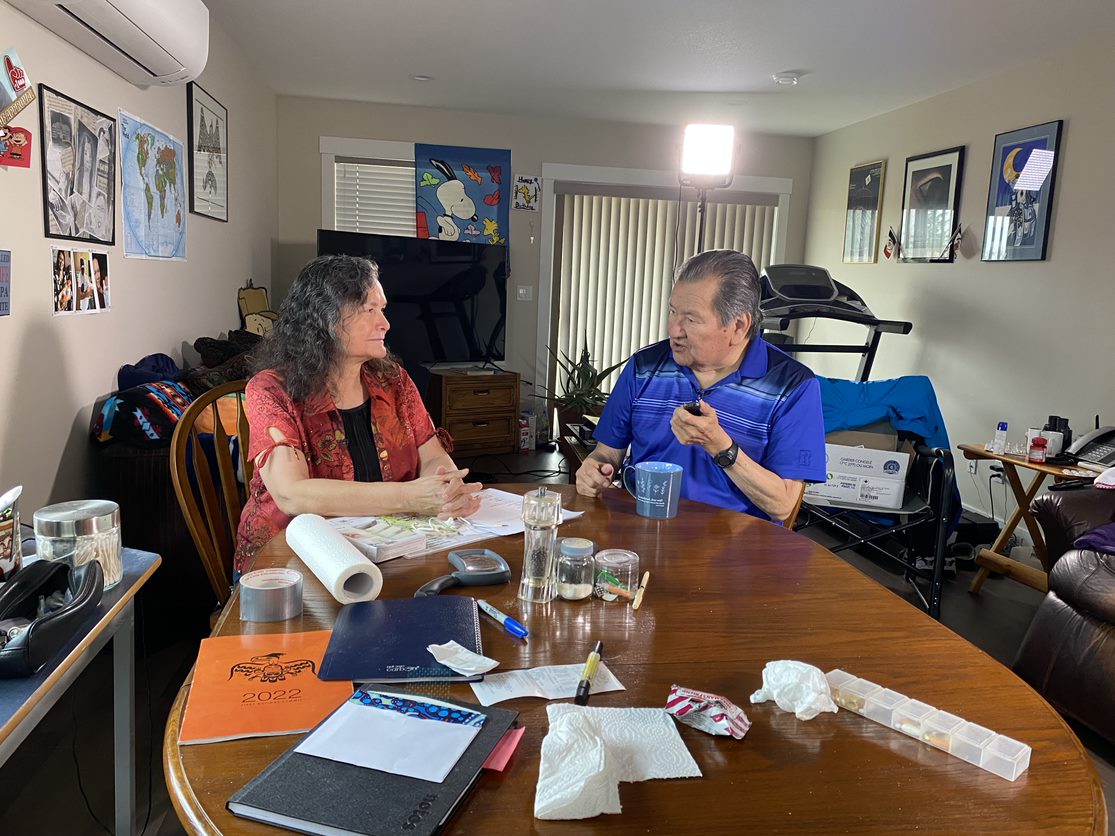




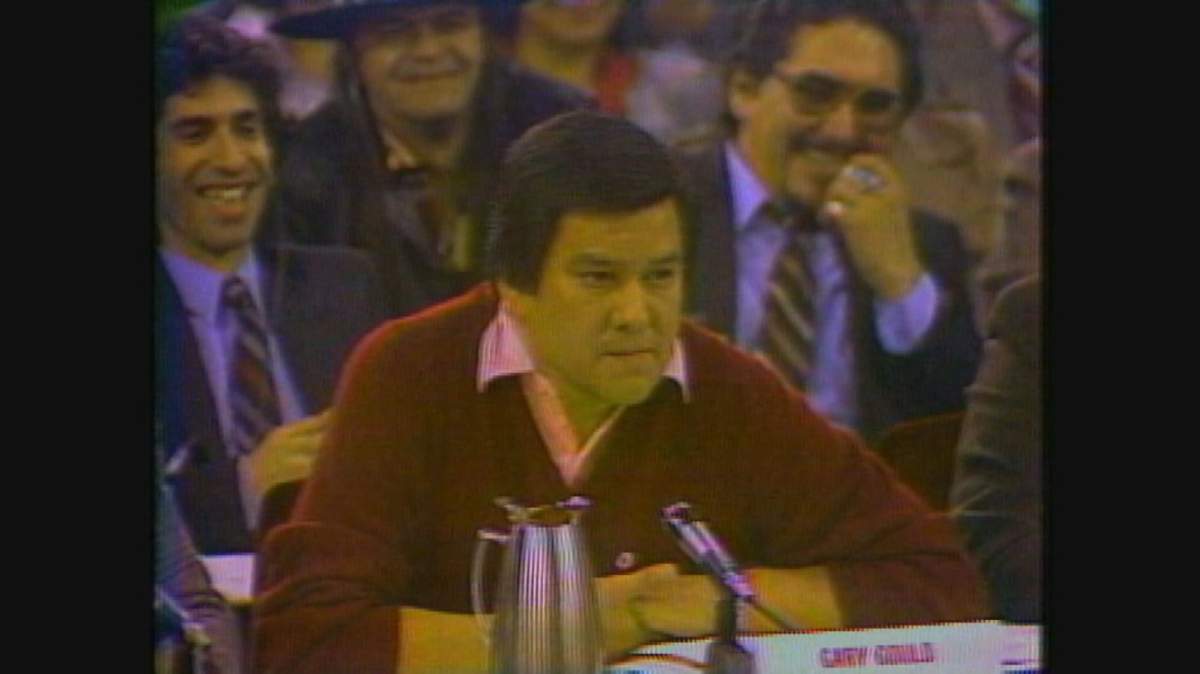
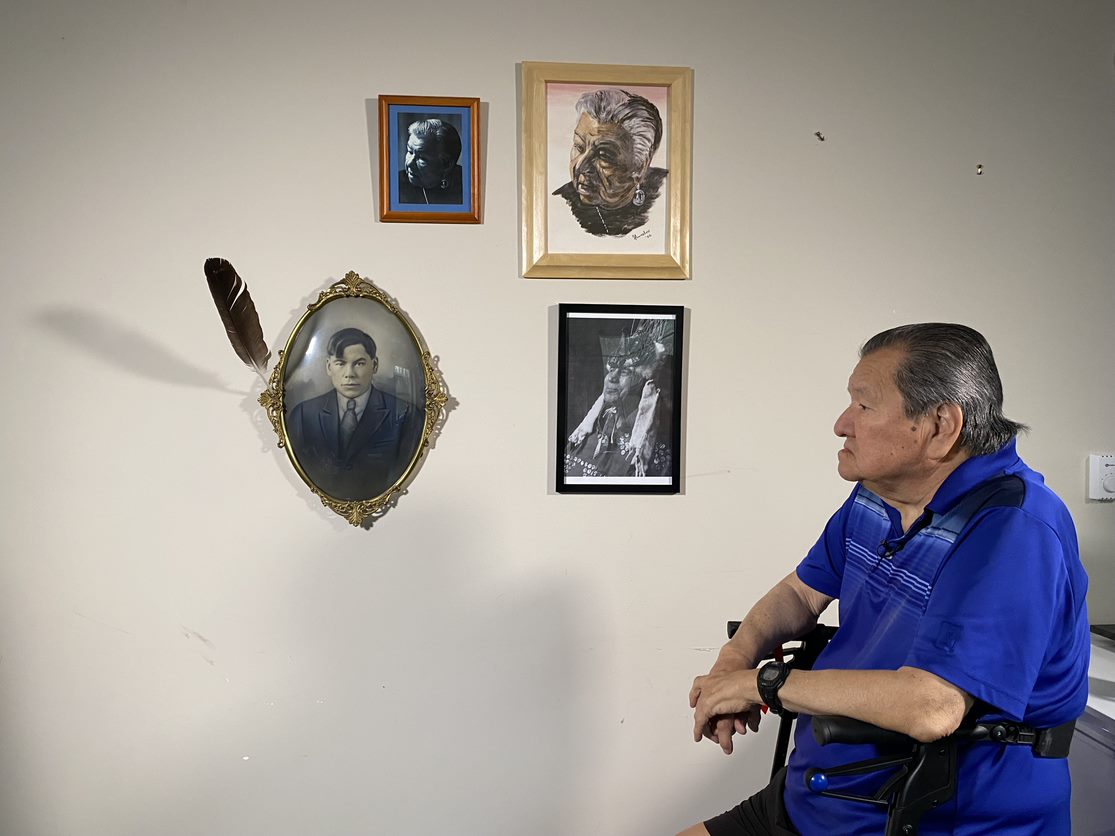


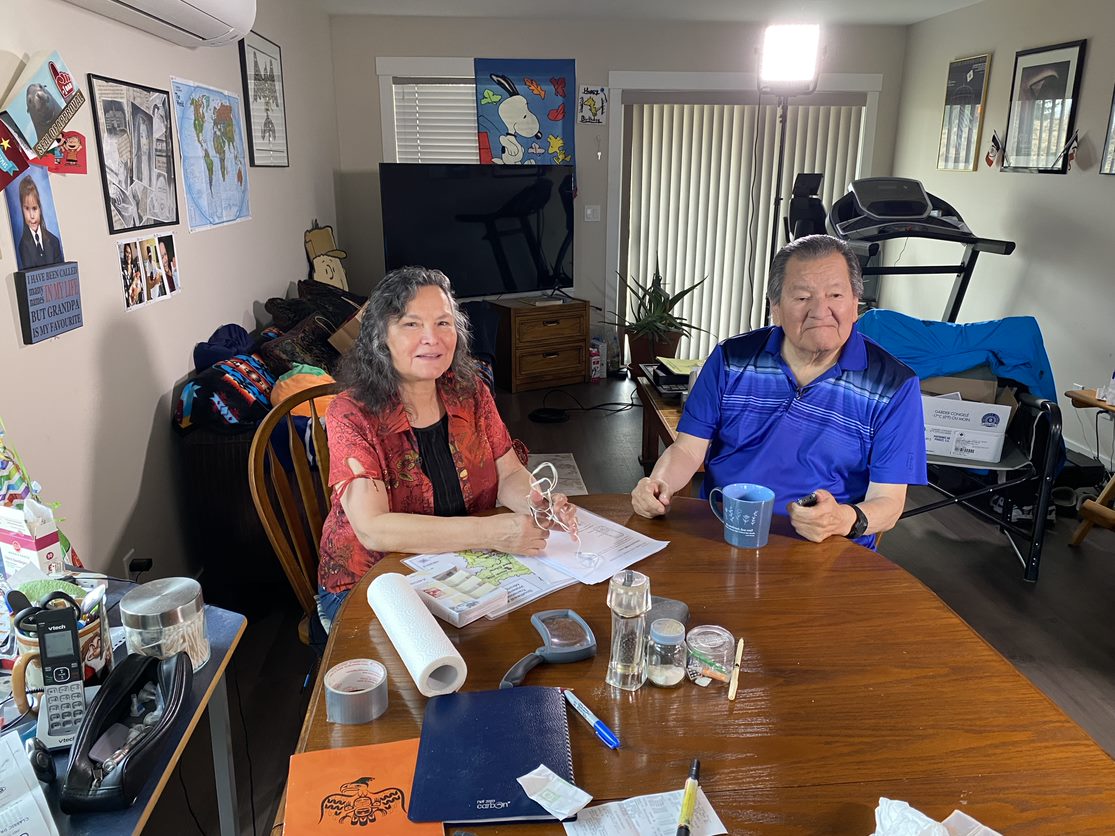
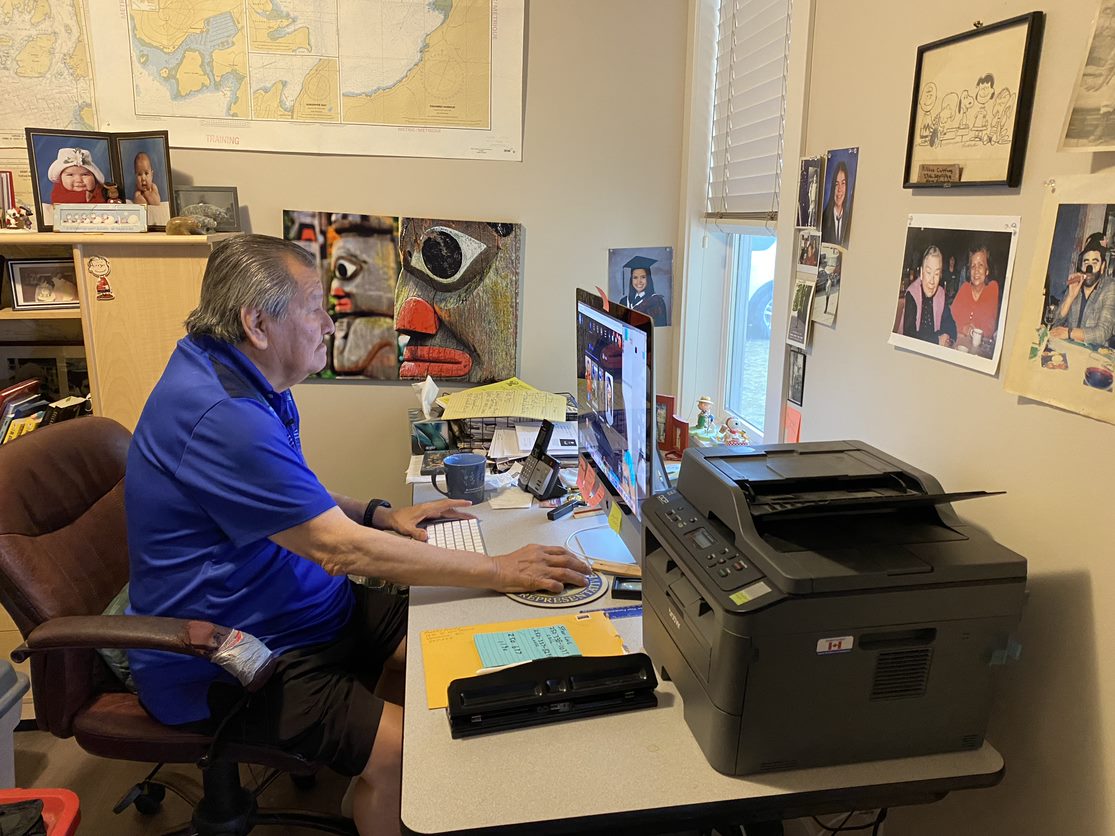
Comments